Since the day we began to prepare this trip I was excited because I had wanted to visit the Acropolis of Athens since I was a child. We were lucky because the day was lovely again in Athens.
The Acropolis of Athens was a military fortress during the Neolithic period, due to its position which offers a great view of the land and the sea.
During the Mycenaean times, it became a religious centre, dedicated to the worship of the goddess Athena. It is said that the place was declared a province only to the gods by an oracle, and therefore stopped being inhabited by the people.
Map of the Acropolis of Athens
Reconstruction of the Acropolis of Athens
The three temples of major importance, the Parthenon, the Erechteion and the Temple of Athena Nike, were erected during the classical period (450-330 B.C.) on the remains of earlier temples. All three of them are dedicated to different aspects of the Goddess Athena.
The Persians destroyed the Acropolis during the battle of Salamina in 480 B.C. The founder of the Athenian democracy, Pericles, was the one who rebuilt it under the form it has kept until today.
We began our visit to the Acropolis entering the area of the Theater of Dionysos. From here we followed the path up to the Parthenon and the Acropolis viewpoint. At this point is where we stayed longer. It is actually a good place for taking pictures.
We visited the following places of the Acropolis:
- Theatre of Dionysos
- Theatre of Herodes Atticus
- The Propylea
- Erectheion
- Parthenon
- Viewpoint of the Acropolis
- Temple of Athena Nike
Theatre of Dionysos
The auditorium of the Theatre of Dionysos in Athens had 17000 seats
Acropolis of Athens from the Theatre of Dionysos
The Theatre of Dionysos was our first visit in Athens
This path leads from the Theater of Dionysos to the Theatre of Herodes Atticus and the Acropolis
Theatre of Herodes Atticus
Theatre of Herodes Atticus beside Philopappos Hill in Athens
The Propylea
Propylea in the Acropolis of Athens
Erectheion
The Erectheion is an fantastic example of the Ionic architecture
The Caryatids, the six women replacing the columns that support the marble roof, are the most famous part of the Erectheion
Parthenon
This monument is the symbol of the Ancient Greek civilization. It is the most important monument until today. It was dedicated to the patron goddess of the city, Athena, since Parthenon means also the apartment of the virgin. Athena was the goddess of wisdom, war and also a virgin.
The Parthenon is located on the top of the Acropolis hill. It is a fine example of the Doric architectural style. It has 8 Doric columns on each of the narrow sides and 17 columns on each of the long side
The Parthenon beside the Via Sacra from the Acropolis viewpoint. On the right you can see the Erectheion with the Caryatids
From the Acropolis viewpoint I realized how big Athens is. The city limits in any direction could not be seen. You get a good view of Licavettos hill too. Facing the Acropolis, the Parthenon is quite restored, and it only remains a part of a colonnade to restore.
We left the Acropolis by The Propylaea and the temple of Athena Nike to the area of the Ancient Agora and the Temple of Hephaestus, which is very well preserved.
Temple of Athena Nike
Temple of Athena Nike in the Acropolis of Athens
Viewpoint of the Acropolis
Ancient Agora of Athens from the Acropolis
Acropolis from the Ancient Agora in Athens
Propylea and temple of Athena Nike in the Acropolis of Athens
Acropolis lit at night
Acropolis from the top of Stanley Hotel in Athens
This was our trip route from Crete and the Greek Islands to Athens:
Day 1 - Crete: Chania
- Beach of Agios Apostoli
- Venetian Port
- Splantzia (Turquish Quarter)
- Jewish Quarter
Day 2 - Crete
Day 3 - Crete: Rethymnon and Heraklion
- Venetian Port in Rethymnon
- Loggia, Rimondi fountain and streets of the old town of Rethymnon
- Fortress of Rethymnon
- Venetian Port of Heraklion
Day 4 - Crete
Day 5 - Santorini
- Hellenic Seaways ferry from Heraklion to Santorini
- Sunset in Oia
Day 6 - Santorini
- Fira
- Excursion to Nea Kameni and Volcano
- Beach of Perissa (black beach)
- Sunset in Firostefani
Day 7 - Santorini
- Red Beach, White Beach and Black Beach
- Sunset in Fira
Day 8 - Mykonos
- Hellenic Seaways ferry from Santorini to Mykonos
- Mykonos Town
- Windmills and Little Venice
Day 9 - Mykonos
- Delos Island
- Paraportiani Church in Mykonos Town
- Beach of Agios Ioannis
- Little Venice
Day 10 - Mykonos
Day 11 - Mykonos Town
- Mykonos Town
- Blue Star ferry to Athens
Day 12 - Athens
- Acropolis
- Ancient Agora
- Hadrian's Library
- Temple of Olympian Zeus
- Panathenaic Stadium
- Monastiraki District
Other countries and cities I have already visited are:
- Istanbul and Cappadocia
- Rome and The Vatican
- Florence in Tuscany
- Venice
- Dubrovnik, beaches and coast of Croatia
- Neum, Pocitelj and Mostar in Bosnia Herzegovina
- Tortuguero, Caribe, Arenal, Monteverde and San José in Costa Rica
- Marrakech in Morocco
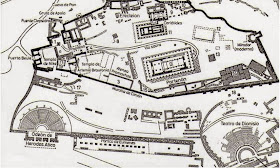
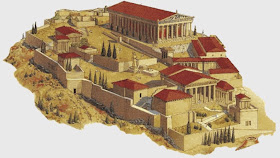
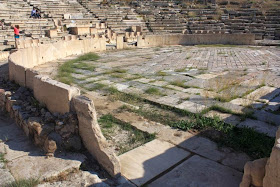
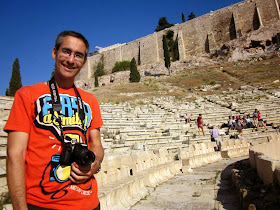
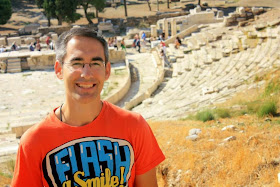
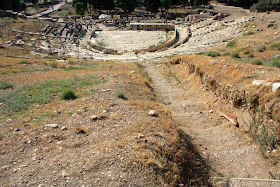
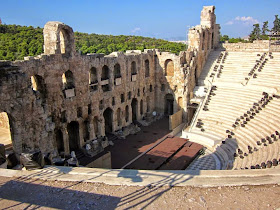
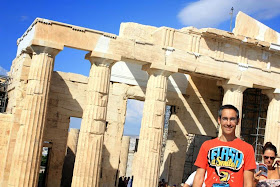
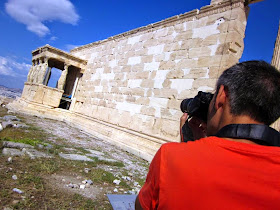
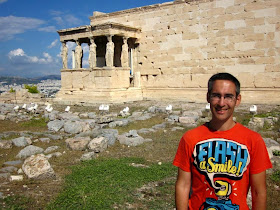
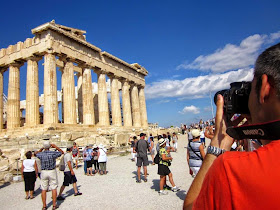
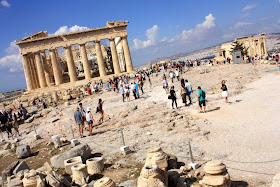
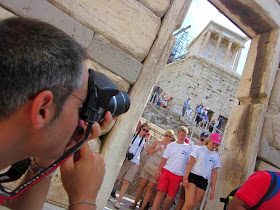
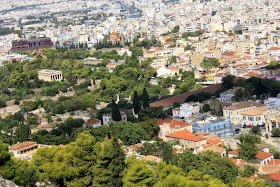
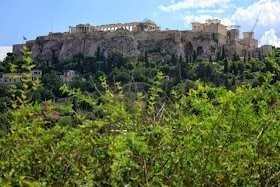
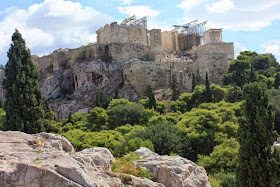
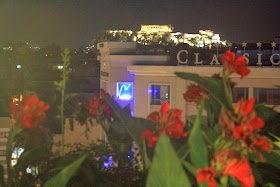
No hay comentarios:
Publicar un comentario